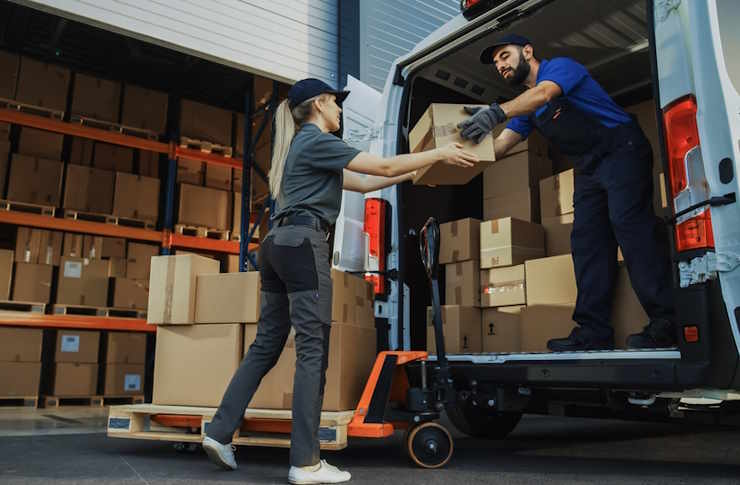Discover Packing Training Opportunities in Germany’s Vibrant Cities
In Germany, numerous packaging companies are seeking skilled individuals to join their teams. The country offers a variety of packing training programs across its vibrant cities, equipping participants with essential skills needed in the packaging industry. By engaging in these training opportunities, individuals can enhance their employment prospects and gain valuable experience in a fast-growing sector.
Exploring Various Packaging Companies and Their Workspaces
The packaging industry in Germany encompasses a wide spectrum of operational environments. Large-scale manufacturing facilities often feature highly automated packaging lines with sophisticated equipment requiring technical aptitude and attention to detail. Meanwhile, smaller specialty packaging operations may focus more on customized solutions requiring creative problem-solving skills and craftsmanship.
Many packaging facilities operate within Germany’s industrial hubs, particularly in regions like North Rhine-Westphalia, Bavaria, and Baden-Württemberg. These workspaces typically include assembly areas, quality control stations, and logistics zones. The physical environment can vary significantly—from temperature-controlled clean rooms for pharmaceutical packaging to robust industrial settings for heavier products.
Workplace cultures also differ across companies. Some German packaging operations maintain traditional hierarchical structures, while others embrace more collaborative approaches with cross-functional teams. Understanding these variations helps prospective packaging professionals identify environments that match their personal working styles and career objectives.
Discovering Comprehensive Packing Training Opportunities
Germany offers several structured pathways to develop packaging expertise. The dual education system combines classroom learning with practical application in actual work environments. For packaging specialists, this typically involves a three-year apprenticeship program called “Fachkraft für Lagerlogistik” (Warehouse Logistics Specialist) or “Fachlagerist” (Warehouse Specialist), both of which include extensive training in packaging processes.
These programs cover essential skills such as proper packing techniques, materials handling, inventory management, quality control procedures, and occupational safety standards. Participants gain proficiency with packaging equipment while developing knowledge of materials science, logistics principles, and sustainability practices.
Beyond formal apprenticeships, numerous technical schools (Berufsschulen) offer certificate courses focusing specifically on packaging technologies. These programs typically range from several weeks to six months, providing targeted skill development for those seeking to enter the field or enhance existing capabilities. Many courses include modules on specialized packaging requirements for different industries, ensuring graduates can adapt to various workplace requirements.
Understanding the Benefits of Pursuing a Career in Packing
Packaging roles offer several advantages for career development in Germany’s industrial sector. First, they provide entry points into manufacturing without requiring extensive educational backgrounds, making them accessible to a diverse workforce. Many companies value practical skills and reliability over academic credentials for these positions.
The packaging field also offers stability, as these functions remain essential across economic cycles. While automation continues to evolve, human oversight and specialized handling remain crucial in many packaging operations. This creates a balanced environment where technological skills complement rather than replace manual capabilities.
Career progression pathways exist for those who demonstrate aptitude and commitment. Entry-level positions can lead to specialized roles like packaging technician, quality assurance specialist, or team leadership positions. With additional training, packaging professionals may advance to production management, logistics coordination, or even packaging design and development.
Navigating Regional Training Opportunities
Germany’s federal structure means training programs and opportunities vary by location. Major industrial cities like Hamburg, Munich, Frankfurt, and Cologne host multiple training facilities with packaging-specific curricula.
In Hamburg and Bremen, programs often emphasize port logistics and export packaging requirements, reflecting these cities’ maritime significance. Munich and Stuttgart training centers frequently focus on high-precision packaging for automotive and electronic components. Frankfurt and the Rhine-Main region offer programs specializing in chemical and pharmaceutical packaging protocols.
Berlin’s training landscape includes innovative packaging design programs alongside traditional operational training. Meanwhile, Leipzig and Dresden feature courses that balance modern automation with traditional German craftsmanship approaches to packaging.
Essential Skills Development for Packaging Professionals
Successful packaging careers require a combination of technical competencies and workplace attributes. Technical skills include materials handling, equipment operation, quality inspection protocols, and documentation procedures. Increasingly important are digital literacy skills for working with inventory management systems and automated packaging equipment.
Physical capabilities remain relevant, with appropriate lifting techniques and ergonomic awareness essential for long-term career sustainability. Equally important are attention to detail, spatial reasoning, and problem-solving skills—particularly when addressing unique packaging challenges or troubleshooting equipment issues.
Communication abilities and teamwork orientation prove valuable in modern packaging environments where coordination between departments affects overall production efficiency. Additionally, understanding of sustainability principles has become increasingly important as companies work to minimize packaging waste and environmental impact.
The combination of these technical and interpersonal capabilities creates versatile packaging professionals equipped to adapt as industry practices evolve.
Industry Outlook and Employment Prospects
The packaging sector in Germany continues to demonstrate resilience even amid economic fluctuations. Evolving consumer preferences and e-commerce growth have further expanded packaging requirements across industries. This creates a generally positive outlook for those seeking long-term career stability in the field.
Geographical considerations affect employment opportunities, with stronger prospects typically found in industrial regions and logistics hubs. Many packaging operations cluster around manufacturing centers and transportation networks, though specialized packaging facilities exist throughout the country.
Those who complete formal training programs typically enjoy better positioning for career advancement and job security. Certification demonstrates commitment and technical capability, qualities valued by employers seeking reliable packaging professionals.
The combination of accessible entry points, clear advancement pathways, and sustained demand makes packaging careers worthy of consideration for those exploring vocational opportunities in Germany’s industrial landscape.





